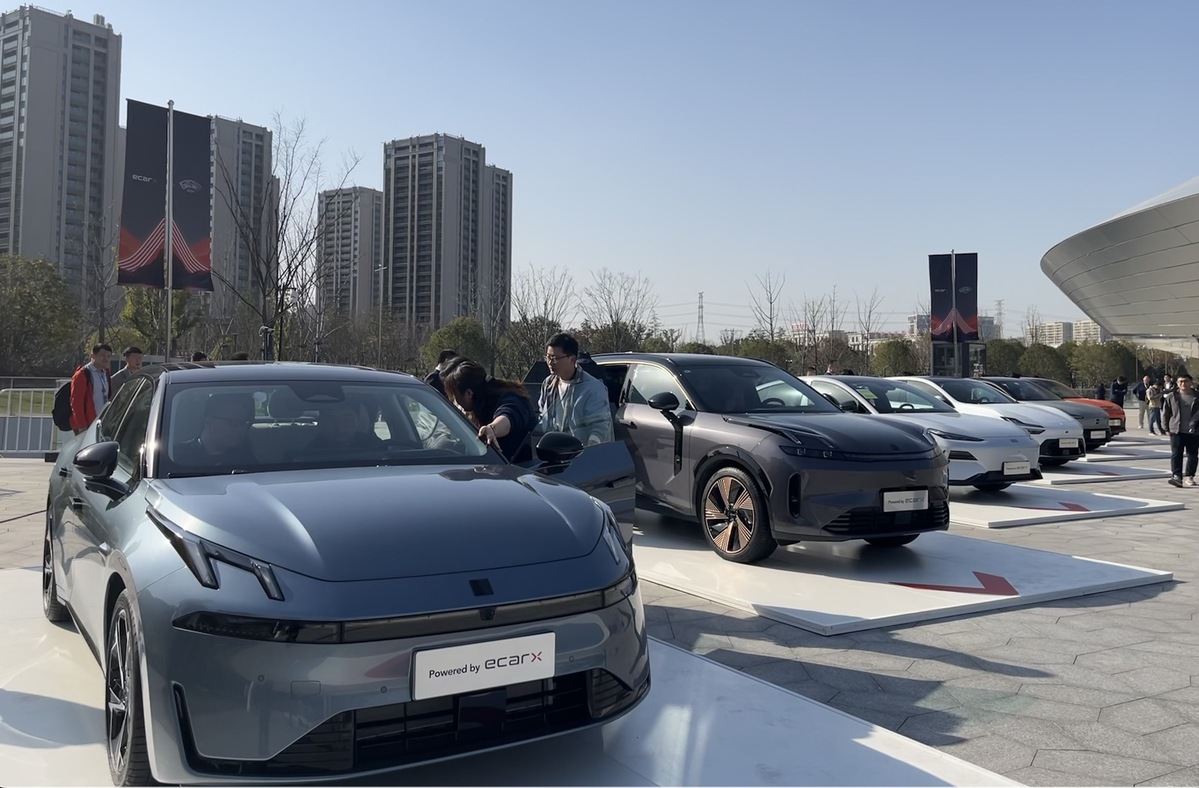Ecarx unveils new smart car technology
chinadaily.com.cn | Updated: 2024-03-22 17:26

Nasdaq-listed chipmaker Ecarx revealed a suite of technological products and platforms at its second Tech Day on Wednesday in Hangzhou, Zhejiang province, aiming to assist automakers in producing more smart vehicles and support Chinese automakers in expanding overseas.
The new products include long-range semi-solid LiDAR, a compact short-range flash solid-state LiDAR and the AD1000 automotive-grade 7 nanometer high-performance System on a Chip, which can meet the requirements for Level 2 to 4 autonomous driving.
The Atlas and Pikes computing platforms provide global automakers with ways to deliver state-of-the-art in-vehicle infotainment and advanced driver assistance systems. Also on show was the Qogir computing platform powered by the third-generation Qualcomm Snapdragon 8 SoC and co-developed by Xingji Meizu Group.
Ecarx showcased its Skyland Pro computing platform, boasting integrated driving and parking features such as Navigate on Autopilot, Automatic Park Assist, Remote Park Assist and Home Zone Park Assist, among others.
According to the company, highway NOA will be launched soon in the provinces of Zhejiang, Jiangsu, Guangdong and Shanghai, with a nationwide rollout to follow.
In addition to its partnerships with Geely's brands, given its co-founding by Geely Group's chairman, Li Shufu, the company announced an expanded strategic partnership with FAW on Wednesday. The two parties will collaborate to develop an industry-leading intelligent computing platform and the Hongqi Operating System.
Founded seven years ago, Ecarx has served 16 carmakers' 25 brands, including smart, Polestar, Lynk & Co and Volvo, covering 6 million vehicles.
Having launched a variety of intelligent cockpit and driving software and hardware solutions, CEO Shen Ziyu said that Ecarx aims to compete with Huawei's smart car unit and become a leading provider of novel components for smart connected vehicles.
The company achieved a revenue of 4.67 billion yuan ($647 million) in 2023, marking a 31 percent year-on-year growth. Net losses narrowed by 37 percent year-on-year to 1.02 billion yuan.
























